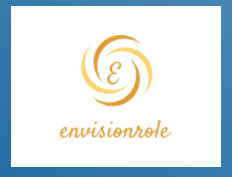5 Essential PPC Measurement Initiatives for Success in 2025:
Prepare for the evolving challenges in paid media by focusing on compliance, optimizing first-party data, and leveraging innovative tracking solutions.
As we head into 2025, the landscape of marketing measurement is more complex than ever.
Third-party cookies are becoming less reliable but are still present in Chrome.
New privacy regulations are constantly emerging.
Ad platforms continue to introduce tools for measurement while scaling back data collection methods.
While perfect PPC measurement won’t be achievable in 2025, taking proactive steps now will position your campaigns to drive results and gather meaningful insights. Here’s how:
Ensure Privacy Compliance
Compliance with privacy regulations is vital to avoid fines and restrictions.
In the EU, GDPR makes strict compliance non-negotiable. Similarly, in the U.S., laws like CCPA necessitate staying updated.
Respect user consent decisions by providing opt-out options and ensuring preferences are recorded accurately.
Implement a consent management platform to manage compliance effectively.
Audit Third-Party Cookie Usage
Understand how your organization uses cookies and prepare for their diminishing impact.
Conduct a thorough review of cookie usage, including pixels and tag management systems.
Implement enhanced conversions in Google and the Conversions API (CAPI) in Meta and LinkedIn.
Considering Chrome’s pending opt-out feature, build a robust framework to transition away from third-party cookies.
Invest in First-Party Data Collection
First-party data remains invaluable as third-party cookies decline.
Gather essential information like names, emails, lead sources, and user engagement data.
Use content interactions—blogs, Q&As, and chats—as opportunities to collect data.
Test methods like exit-intent popups and exclusive promotions encourage data sharing.
Regularly review your CRM data to ensure accurate collection and address any gaps or inconsistencies.
Adopt Privacy-First Measurement Strategies
Utilize tools like Google’s enhanced conversions and Meta’s CAPI to track conversions while adhering to privacy standards.
Set up server-side tracking to pass conversion events to platforms for validation.
Monitor event match quality scores (Meta) and data sufficiency percentages (Google) to identify errors or performance issues.
Aim for high match rates (e.g., Meta’s score of 8–10) to optimize data quality.
Embrace Server-Side Tracking
With third-party cookie tracking becoming less effective, server-side tracking offers a durable alternative.
Use tools like Customer Data Platforms (CDPs) and server-side Google Tag Manager with first-party cookies.
Collaborate closely with marketing, sales, and product teams to update your data model regularly.
While more complex and costly than browser-side tracking, server-side tracking ensures greater control and durability.
Stay Ahead in PPC: Privacy, Cookies, and Measurement
These initiatives may not be the most glamorous aspects of marketing, but they are critical for long-term success.
If your team lacks the resources to handle these tasks, consider partnering with an experienced firm in your industry.
By prioritizing these foundational efforts, you’ll position your campaigns for privacy-compliant growth and deeper insights into performance.

Take action now to navigate the challenges of PPC measurement in 2025 and beyond, ensuring your campaigns remain competitive in an evolving landscape.
